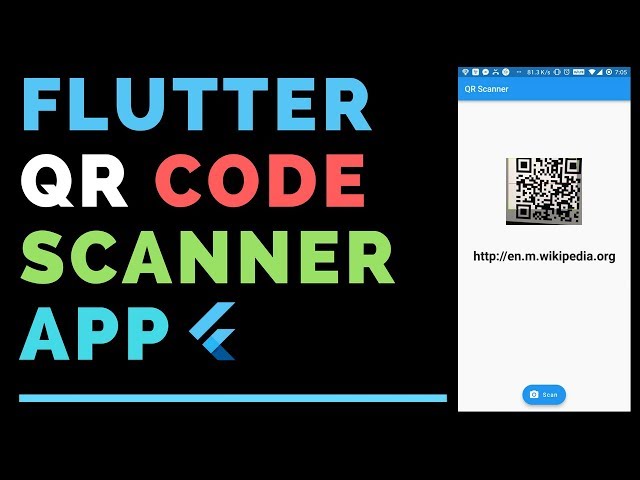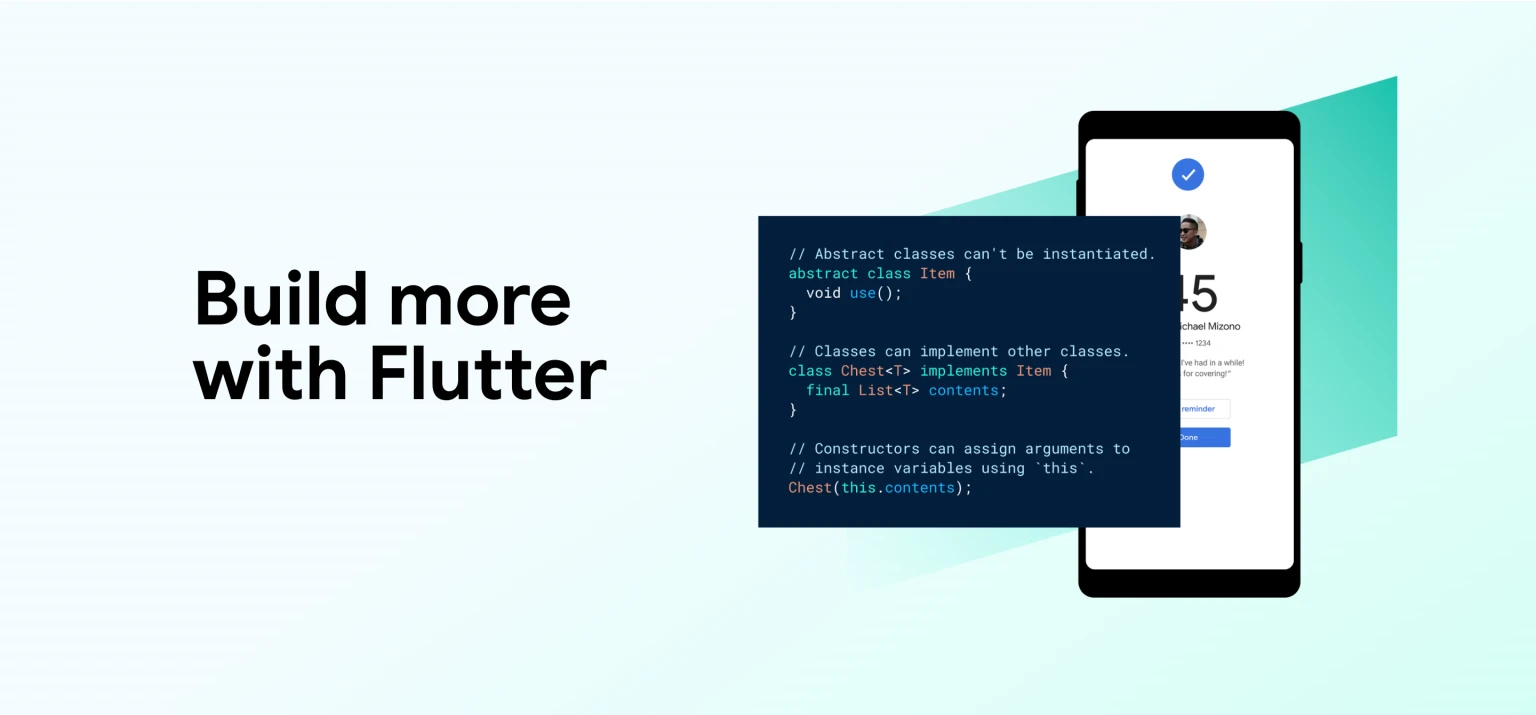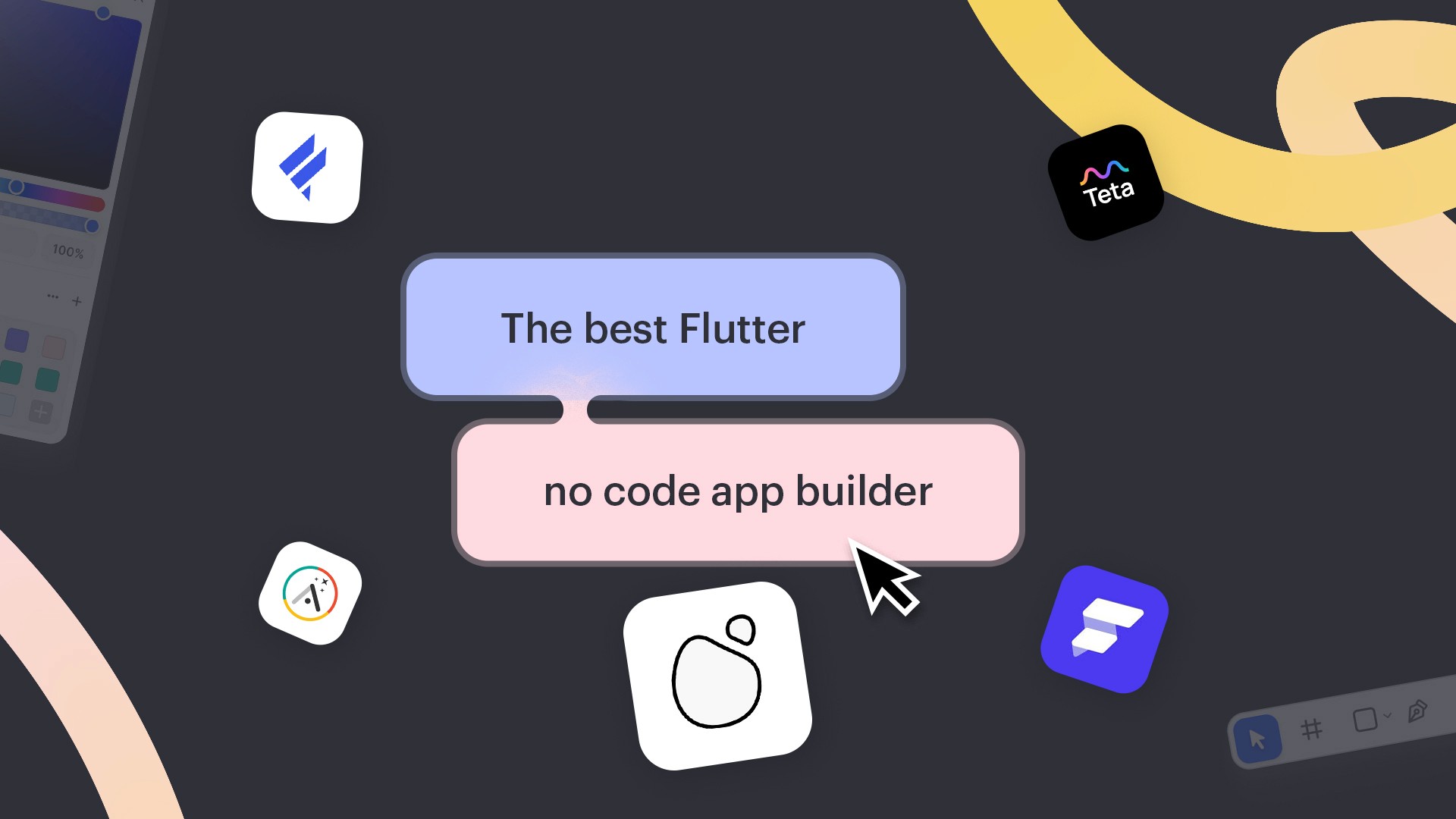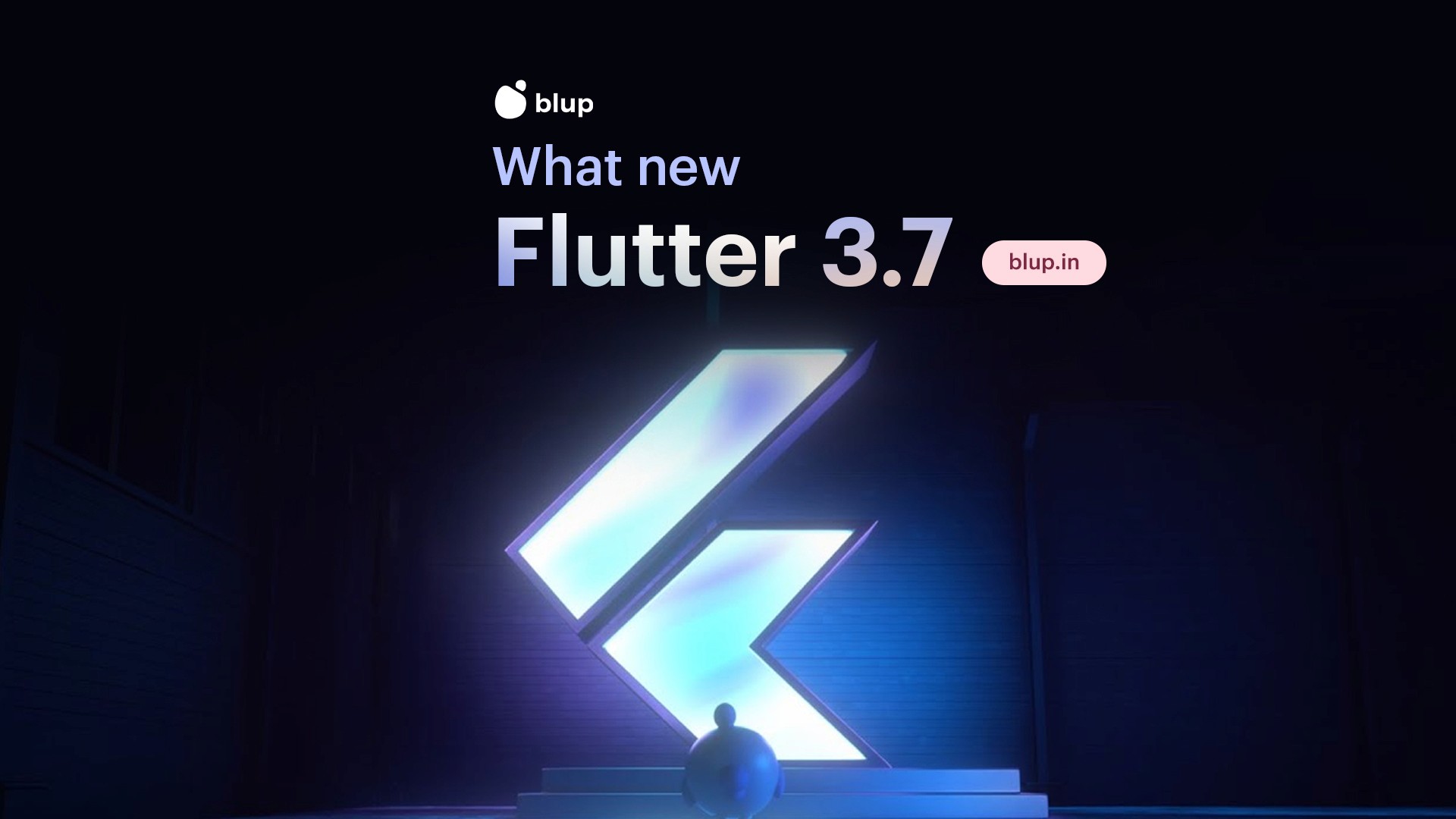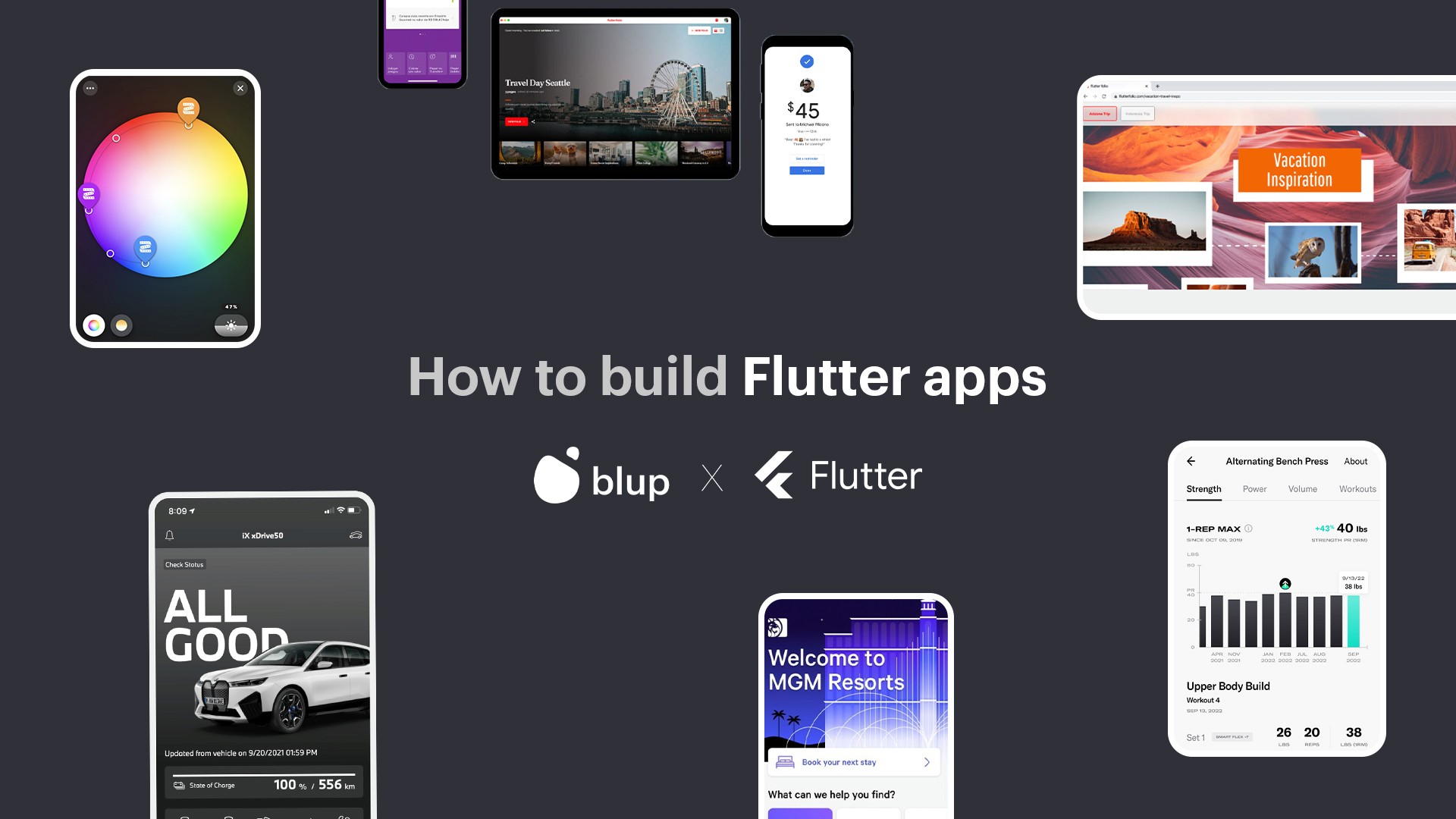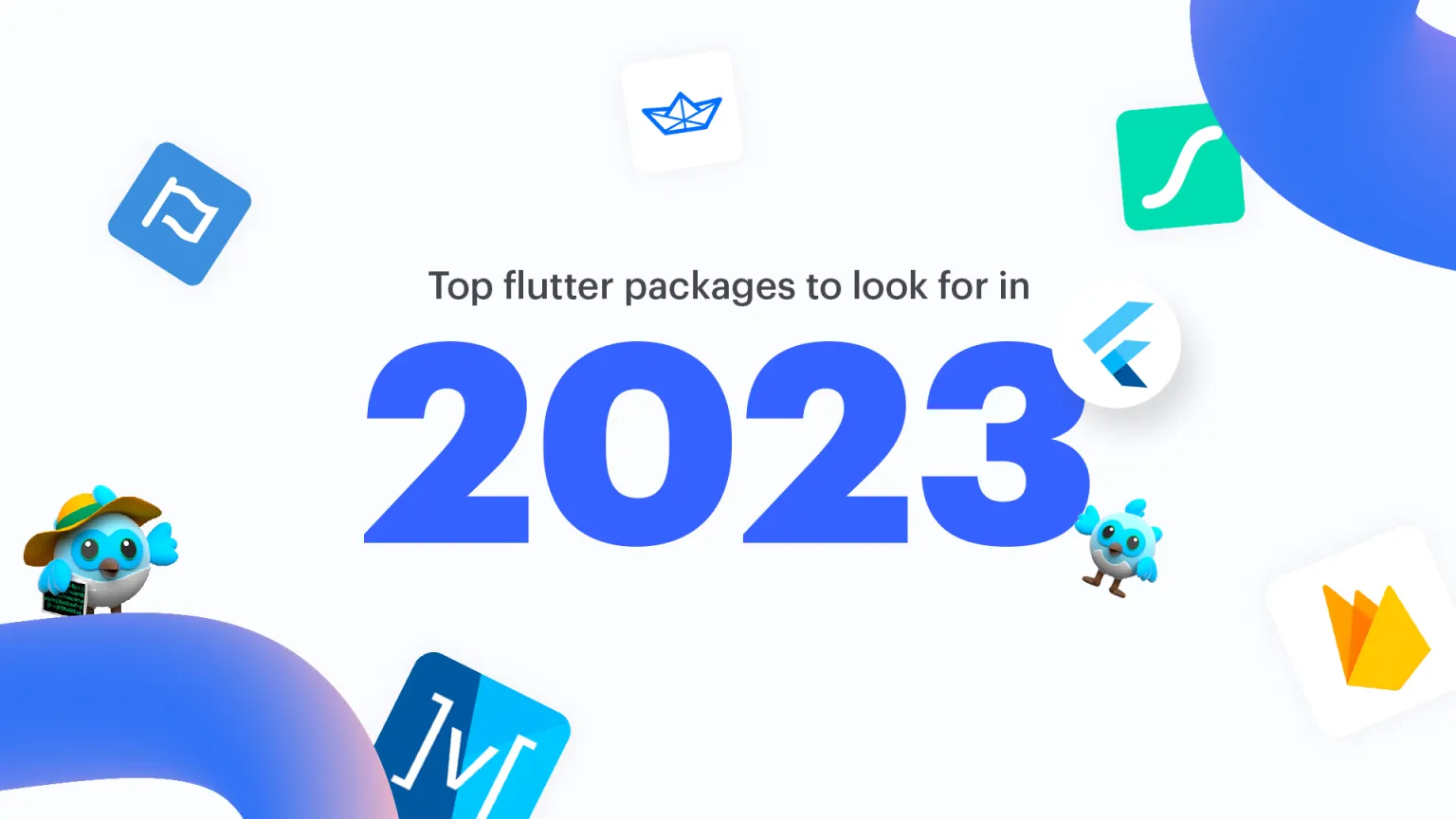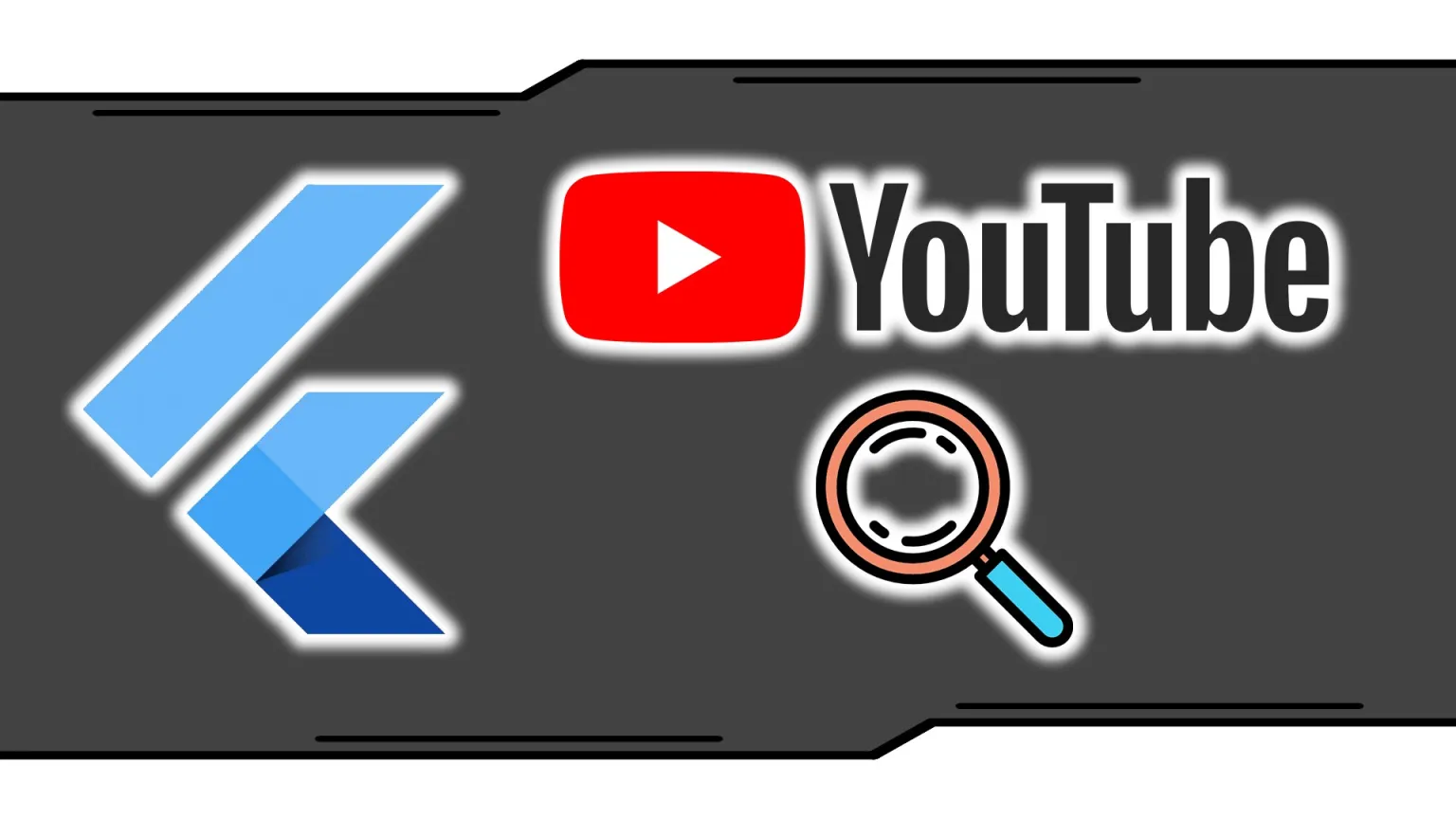**Best IDEs for Dart & Flutter Development: A Must-Read**


The Importance of Choosing the Right IDE for Flutter App Development
Flutter has been gaining popularity as a mobile app development platform due to its ease of use, fast development cycle, and its ability to create cross-platform apps. But to develop high-quality Flutter apps, developers need a powerful integrated development environment (IDE) that can handle the complex requirements of app development.
What is an IDE and Why is it Important for App Development?
The acronym "Integrated Development Environment" (IDE) implies a computer program that provides an extensive environment for building software applications. It is a suite of programming tools that makes it easier for developers to write, test, and debug code. IDEs are essential in app development because they offer an all-in-one platform for developers to write, compile, and debug code efficiently.
IDEs provide features such as code completion, syntax highlighting, and code analysis, which help developers catch errors and enhance code quality. They also offer features such as version control, code refactoring, and debugging, which simplify the app development process and enhance the developer's productivity.
IDEs are designed to work with specific programming languages and platforms, and they often offer a range of tools and features that are specific to that language or platform. This means that developers can work on a specific app development project without worrying about compatibility issues.
Furthermore, IDEs help reduce the time and effort required to build mobile apps. The development process is streamlined because IDEs integrate all the tools needed for mobile app development in one place, thus reducing the time it takes to switch between different applications.
In conclusion, IDEs play a critical role in mobile app development, and developers should choose the right IDE based on their specific project requirements. The right IDE can help developers build better quality apps faster and more efficiently.
Blup - the best IDE for flutter developers
Blup is a top-notch IDE for Flutter app development that offers several advantages over other IDE options available in the market. Feature loaded with auto-code completion, suggestions, live compiling, hot reloading, and visualized logic and ui creation, there's hardly any IDE good enough like Blup.

Here are some comparative pointers that highlight why Blup outperforms them all:
Drag-and-Drop Builder: Unlike other IDEs, Blup comes with a drag-and-drop builder that enables you to create stunning, feature-packed app pages with ease. This feature saves time and makes the development process more efficient.
Visual Logic Creator: Blup's visual logic creator allows you to create dynamic logic that powers your app's widgets. This feature enables developers to create complex logic with ease, without the need for tedious coding.
Blup Backend: Blup comes with a powerful GUI-based database, called Blup Backend, which complements the IDE perfectly. This feature enables developers to load and save data with ease, knowing that their data is highly secured and always available.
Multi-Platform Support: Blup allows developers to publish their apps to both the Apple Store and Play Store, reaching a vast audience of potential users. This feature enables developers to expand their reach and grow their user base.
Code Completion and Debugging: Blup offers code completion and debugging features that enable developers to identify and fix errors quickly. This feature saves time and ensures that the app is free from errors before it is published.
In conclusion, Blup is an excellent IDE for Flutter app development. Overall, Blup IDE's intuitive interface, drag-and-drop builder, visual logic creator, Blup Backend, multi-platform support, and code completion/debugging features make it a superior option for Flutter app development compared to other IDE options available in the market.
Android Studio
Heard often in dev circle, Android Studio is another native Integrated Development Environment (IDE) for developing Android apps. It is based on the IntelliJ IDEA, a Java IDE for software development, and it provides developers with a powerful set of tools to create, test, and deploy mobile applications.
One of the key features of Android Studio for Flutter app development is code completion, which provides suggestions for code as you type, making it faster and easier to write code. This feature is especially useful when working with large and complex codebases. Code completion in Android Studio also supports Flutter-specific code, such as widgets and properties, allowing for more efficient development.

Another important feature of Android Studio for Flutter developers is debugging. With Android Studio, developers can debug their Flutter apps in real-time, allowing them to identify and fix issues quickly. The IDE provides a variety of debugging tools, including breakpoints, variable inspection, and stack traces, which can help developers quickly identify and fix errors.
Android Studio also has excellent integration with Flutter tools, including the Flutter SDK and Flutter plugins. The IDE provides templates and wizards for creating Flutter projects, as well as a built-in Flutter inspector for debugging and testing Flutter widgets. Additionally, Android Studio allows developers to use Flutter’s hot reload feature, which enables fast and efficient app development by allowing developers to see changes to their code in real-time.
In summary, Android Studio has powerful code completion and debugging tools, as well as its seamless integration with Flutter SDK and plugins. With Android Studio, developers can write high-quality Flutter apps with ease and efficiency.
Visual Studio Code
Visual Studio Code (VS Code) is a popular cross-platform IDE developed by Microsoft. It has gained a lot of traction in the developer community thanks to its extensive support for plugins and extensions, making it one of the most customizable IDEs on the market. VS Code also has robust features for Flutter app development.

Code Completion:
One of the most useful features of VS Code is its code completion. It has an advanced auto-completion system that suggests code snippets and function names as you type. This feature saves developers time by minimizing typing errors and suggesting the correct syntax. Additionally, VS Code has support for Intellisense, which enables intelligent code completion based on the context.
Debugging:
Another key feature of VS Code is its powerful debugging capabilities. It has an intuitive interface that allows developers to set breakpoints, inspect variables, and debug code step-by-step. The debugging tools in VS Code help developers identify and fix errors quickly, making the development process much smoother.
Integration with Flutter Tools:
VS Code integrates seamlessly with Flutter tools, providing developers with features such as Hot Reload and Hot Restart, which allow for quick iteration and testing. VS Code also supports Flutter DevTools, which provide real-time performance profiling and memory analysis. This integration provides developers with a comprehensive set of tools for building and debugging Flutter applications.
Its code completion, debugging, and integration with Flutter tools make it a powerful and versatile development environment. Developers who use VS Code can enjoy a smoother and more efficient development process.
IntelliJ IDEA
Many developers have also used IntelliJ IDEA, an IDE for developing Flutter apps, thanks to its advanced code completion and analysis features. The IDE provides extensive support for the Dart language, including syntax highlighting, error highlighting, and code navigation. Additionally, IntelliJ IDEA comes with a powerful debugger that allows developers to debug their Flutter apps with ease.

One of the standout features of IntelliJ IDEA is its seamless integration with Flutter tools. The IDE includes a built-in Flutter inspector that enables developers to inspect and debug the visual tree of their Flutter apps. This makes it easy to identify and fix layout issues, as well as track down bugs in complex UIs.
Another key feature of IntelliJ IDEA is its support for code generation. With the click of a button, developers can generate boilerplate code for common Flutter patterns, such as Stateful and Stateless widgets. This helps to speed up the development process and ensures that code is consistent and maintainable.
IntelliJ IDEA also includes a number of other features that can help improve the Flutter app development process, such as Git integration, code refactoring, and support for plugins. Overall, IntelliJ IDEA is a powerful and flexible IDE that can help developers build high-quality Flutter apps quickly and efficiently.
Xcode
Xcode is the official IDE for iOS app development and is designed by Apple Inc. The IDE of Xcode offers a full set of tools for creating software for Apple's platforms, such as iOS, macOS, watchOS, and tvOS.
One of the key features of Xcode is its code completion, which provides intelligent suggestions and completions for your code as you type, allowing for faster and more accurate coding. Additionally, Xcode's built-in debugger helps developers find and fix errors in their code, allowing for smoother and more efficient app development.

Another notable feature of Xcode is its seamless integration with Flutter tools. With the Flutter plugin for Xcode, developers can easily create and run Flutter apps directly from Xcode, as well as access Flutter-specific features such as hot reload and code completion. This integration streamlines the development process and makes it easier for developers to create high-quality, performant apps for iOS.
Xcode also offers a comprehensive set of tools for testing, debugging, and optimizing app performance. With Xcode's built-in testing framework, developers can easily create and run unit tests, integration tests, and UI tests to ensure their app is functioning as expected. Additionally, Xcode includes tools for profiling and analyzing app performance, allowing developers to identify and optimize areas of their app that may be causing performance issues.
Overall, Xcode's robust set of features, including code completion, debugging, and integration with Flutter tools, make it a powerful tool for Flutter app development on iOS. Its intuitive user interface and seamless integration with other Apple tools also make it a popular choice among iOS developers.
Sublime Text
Sublime Text is a lightweight, yet great text editor that is well-known for its fast performance, sleek interface, and extensive plugin library. It supports multiple programming languages, including Flutter, and offers a range of features that can help improve the Flutter app development process.
Code completion is one of the key features of Sublime Text, which can help developers save time by suggesting the most relevant code snippets, keywords, and functions as they type. It also supports multiple cursors, which allows developers to edit several lines of code at once, making it easier to write and refactor code.

Sublime Text's debugging features are also highly praised by developers. It offers built-in support for debugging through the use of plugins, which can be easily installed from its plugin library. These plugins enable developers to debug their Flutter apps with ease, by providing access to breakpoints, watch expressions, call stacks, and other debugging tools.
Another advantage of Sublime Text is its integration with Flutter tools. Developers can install Flutter and Dart plugins in Sublime Text to access a range of features, such as code highlighting, syntax checking, and automatic formatting. It also offers support for hot reload, which can help speed up the development process by instantly reloading changes made to the code.
In conclusion, Sublime Text has a text editor for Flutter app development, thanks to its code completion, debugging, and integration with Flutter tools. Its sleek interface, fast performance, and extensive plugin library make it a popular choice for developers who want a lightweight yet powerful text editor.
Emacs
Emacs is a popular text editor for programmers, known for its extensive customization options and powerful built-in features. The editor can be extended with plugins and scripts to support various programming languages, including Flutter, and features a customizable interface with support for multiple windows and panes.
Emacs provides advanced features such as code completion, syntax highlighting, and a debugger. It also supports integration with Flutter tools, making it an excellent choice for Flutter app development. Emacs' ability to customize keyboard shortcuts and automate tasks with macros can improve the development process by reducing repetitive tasks and increasing efficiency.

Emacs also supports version control systems like Git, allowing developers to manage code changes and collaborate with others effectively. It also has powerful search and replace functionality, allowing developers to quickly find and replace code across multiple files.
In summary, Emacs is a powerful text editor that can be customized to fit the needs of a Flutter developer. Its advanced features, integration with Flutter tools, and support for version control systems make it an ideal choice for developing high-quality Flutter applications.
Eclipse
Eclipse is an open-source (IDE) that is quite commonly used for developing Java applications. It is known for its robust and extensible architecture and its support for a wide range of programming languages, including C, C++, PHP, and Python. In addition to these features, Eclipse also supports Flutter development through its Dart plugin, which provides code completion, debugging, and integration with Flutter tools.
Code completion is a feature that allows developers to write code faster and with fewer errors. With Eclipse's code completion, developers can write Flutter code more efficiently and accurately, as the IDE suggests code snippets and fills in missing syntax. This feature can save developers a significant amount of time, especially when working on complex applications.

As seen in above GIF from Eclipse, Debugging is another essential feature of any IDE, and Eclipse offers robust debugging tools that allow developers to identify and fix errors in their code quickly. With Eclipse's debugger, developers can step through their code line by line, set breakpoints, and inspect variables and objects. This feature is particularly helpful when working on large, complex applications, where identifying and fixing errors can be time-consuming and challenging.
Finally, Eclipse's integration with Flutter tools allows developers to streamline their development process further. With the Flutter plugin for Eclipse, developers can easily create and manage Flutter projects, run and debug applications, and access Flutter documentation and resources. This integration can help developers save time and improve their productivity, allowing them to focus on developing high-quality Flutter applications.
Overall, Eclipse is a powerful and flexible IDE that offers many features that can help improve the Flutter app development process. Its code completion, debugging, and integration with Flutter tools make it a top choice for developers who want to develop robust and efficient Flutter applications.
DartPad
Dartpad is an online code editor developed by the Dart team, primarily aimed at providing a seamless development experience for beginners. It enables users to execute Dart code snippets without the need to install the Dart SDK and IDE plugins.

Along with its user-friendly interface, Dartpad boasts several advanced features such as a linter, analyzer, and embedded web view, which facilitates the testing of HTML and CSS alongside the Dart code. This resource can be invaluable for developers following along with tutorials and examples on Flutter By Example, offering a hands-on approach to learning and experimentation.
Atom
Atom is a noteworthy open-source text editor with a robust package ecosystem, and Dart is a high-performance, object-oriented language that's optimized for client-side development. The "dart" package is a feature-rich Dart development plugin for Atom, designed to streamline the Dart development workflow.

It offers auto-discovery of the Dart SDK, real-time error and warning notifications, code completion, powerful refactoring capabilities, and tight integration with Pub and other tools.
The package can be easily installed via Atom's package manager, and configuration options allow for customization of SDK location and other settings. However, it's recommended to avoid using certain packages like emmet in conjunction with the "dart" plugin to avoid potential performance issues.
Why should you try Blup for Flutter app development?
Blup offers a powerful IDE for Flutter app development that outperforms its competitors in several key areas. One of its standout features is its drag-and-drop builder, which allows for the creation of stunning and feature-packed app pages in a fraction of the time it would take with traditional coding and design methods.
In addition, Blup's visual logic creator streamlines the app logic design process, allowing for the creation of dynamic logic to power widgets and ensure lightning-fast performance. This feature is particularly valuable for developers who want to focus on app functionality and user experience without getting bogged down in tedious coding.
Compared to other IDE options, Blup's intuitive drag-and-drop builder and visual logic creator, seamless data management, and easy app publishing make it the ideal choice for developers looking to streamline their app development process and focus on creating high-quality user experiences.
It’s an IDE, a mobile app builder, a flutter app development tool, and low code app builder, all in the same package. We also have another blog on Top Flutter Frameworks. Don’t think! Just try downloading Blup and see for yourself, cuz it’s free to use! Also, make sure to join our communities and give us regular feedback. After all, we are made by and made for developers.
The Importance of Choosing the Right IDE for Flutter App Development
Flutter has been gaining popularity as a mobile app development platform due to its ease of use, fast development cycle, and its ability to create cross-platform apps. But to develop high-quality Flutter apps, developers need a powerful integrated development environment (IDE) that can handle the complex requirements of app development.
What is an IDE and Why is it Important for App Development?
The acronym "Integrated Development Environment" (IDE) implies a computer program that provides an extensive environment for building software applications. It is a suite of programming tools that makes it easier for developers to write, test, and debug code. IDEs are essential in app development because they offer an all-in-one platform for developers to write, compile, and debug code efficiently.
IDEs provide features such as code completion, syntax highlighting, and code analysis, which help developers catch errors and enhance code quality. They also offer features such as version control, code refactoring, and debugging, which simplify the app development process and enhance the developer's productivity.
IDEs are designed to work with specific programming languages and platforms, and they often offer a range of tools and features that are specific to that language or platform. This means that developers can work on a specific app development project without worrying about compatibility issues.
Furthermore, IDEs help reduce the time and effort required to build mobile apps. The development process is streamlined because IDEs integrate all the tools needed for mobile app development in one place, thus reducing the time it takes to switch between different applications.
In conclusion, IDEs play a critical role in mobile app development, and developers should choose the right IDE based on their specific project requirements. The right IDE can help developers build better quality apps faster and more efficiently.
Blup - the best IDE for flutter developers
Blup is a top-notch IDE for Flutter app development that offers several advantages over other IDE options available in the market. Feature loaded with auto-code completion, suggestions, live compiling, hot reloading, and visualized logic and ui creation, there's hardly any IDE good enough like Blup.

Here are some comparative pointers that highlight why Blup outperforms them all:
Drag-and-Drop Builder: Unlike other IDEs, Blup comes with a drag-and-drop builder that enables you to create stunning, feature-packed app pages with ease. This feature saves time and makes the development process more efficient.
Visual Logic Creator: Blup's visual logic creator allows you to create dynamic logic that powers your app's widgets. This feature enables developers to create complex logic with ease, without the need for tedious coding.
Blup Backend: Blup comes with a powerful GUI-based database, called Blup Backend, which complements the IDE perfectly. This feature enables developers to load and save data with ease, knowing that their data is highly secured and always available.
Multi-Platform Support: Blup allows developers to publish their apps to both the Apple Store and Play Store, reaching a vast audience of potential users. This feature enables developers to expand their reach and grow their user base.
Code Completion and Debugging: Blup offers code completion and debugging features that enable developers to identify and fix errors quickly. This feature saves time and ensures that the app is free from errors before it is published.
In conclusion, Blup is an excellent IDE for Flutter app development. Overall, Blup IDE's intuitive interface, drag-and-drop builder, visual logic creator, Blup Backend, multi-platform support, and code completion/debugging features make it a superior option for Flutter app development compared to other IDE options available in the market.
Android Studio
Heard often in dev circle, Android Studio is another native Integrated Development Environment (IDE) for developing Android apps. It is based on the IntelliJ IDEA, a Java IDE for software development, and it provides developers with a powerful set of tools to create, test, and deploy mobile applications.
One of the key features of Android Studio for Flutter app development is code completion, which provides suggestions for code as you type, making it faster and easier to write code. This feature is especially useful when working with large and complex codebases. Code completion in Android Studio also supports Flutter-specific code, such as widgets and properties, allowing for more efficient development.

Another important feature of Android Studio for Flutter developers is debugging. With Android Studio, developers can debug their Flutter apps in real-time, allowing them to identify and fix issues quickly. The IDE provides a variety of debugging tools, including breakpoints, variable inspection, and stack traces, which can help developers quickly identify and fix errors.
Android Studio also has excellent integration with Flutter tools, including the Flutter SDK and Flutter plugins. The IDE provides templates and wizards for creating Flutter projects, as well as a built-in Flutter inspector for debugging and testing Flutter widgets. Additionally, Android Studio allows developers to use Flutter’s hot reload feature, which enables fast and efficient app development by allowing developers to see changes to their code in real-time.
In summary, Android Studio has powerful code completion and debugging tools, as well as its seamless integration with Flutter SDK and plugins. With Android Studio, developers can write high-quality Flutter apps with ease and efficiency.
Visual Studio Code
Visual Studio Code (VS Code) is a popular cross-platform IDE developed by Microsoft. It has gained a lot of traction in the developer community thanks to its extensive support for plugins and extensions, making it one of the most customizable IDEs on the market. VS Code also has robust features for Flutter app development.

Code Completion:
One of the most useful features of VS Code is its code completion. It has an advanced auto-completion system that suggests code snippets and function names as you type. This feature saves developers time by minimizing typing errors and suggesting the correct syntax. Additionally, VS Code has support for Intellisense, which enables intelligent code completion based on the context.
Debugging:
Another key feature of VS Code is its powerful debugging capabilities. It has an intuitive interface that allows developers to set breakpoints, inspect variables, and debug code step-by-step. The debugging tools in VS Code help developers identify and fix errors quickly, making the development process much smoother.
Integration with Flutter Tools:
VS Code integrates seamlessly with Flutter tools, providing developers with features such as Hot Reload and Hot Restart, which allow for quick iteration and testing. VS Code also supports Flutter DevTools, which provide real-time performance profiling and memory analysis. This integration provides developers with a comprehensive set of tools for building and debugging Flutter applications.
Its code completion, debugging, and integration with Flutter tools make it a powerful and versatile development environment. Developers who use VS Code can enjoy a smoother and more efficient development process.
IntelliJ IDEA
Many developers have also used IntelliJ IDEA, an IDE for developing Flutter apps, thanks to its advanced code completion and analysis features. The IDE provides extensive support for the Dart language, including syntax highlighting, error highlighting, and code navigation. Additionally, IntelliJ IDEA comes with a powerful debugger that allows developers to debug their Flutter apps with ease.

One of the standout features of IntelliJ IDEA is its seamless integration with Flutter tools. The IDE includes a built-in Flutter inspector that enables developers to inspect and debug the visual tree of their Flutter apps. This makes it easy to identify and fix layout issues, as well as track down bugs in complex UIs.
Another key feature of IntelliJ IDEA is its support for code generation. With the click of a button, developers can generate boilerplate code for common Flutter patterns, such as Stateful and Stateless widgets. This helps to speed up the development process and ensures that code is consistent and maintainable.
IntelliJ IDEA also includes a number of other features that can help improve the Flutter app development process, such as Git integration, code refactoring, and support for plugins. Overall, IntelliJ IDEA is a powerful and flexible IDE that can help developers build high-quality Flutter apps quickly and efficiently.
Xcode
Xcode is the official IDE for iOS app development and is designed by Apple Inc. The IDE of Xcode offers a full set of tools for creating software for Apple's platforms, such as iOS, macOS, watchOS, and tvOS.
One of the key features of Xcode is its code completion, which provides intelligent suggestions and completions for your code as you type, allowing for faster and more accurate coding. Additionally, Xcode's built-in debugger helps developers find and fix errors in their code, allowing for smoother and more efficient app development.

Another notable feature of Xcode is its seamless integration with Flutter tools. With the Flutter plugin for Xcode, developers can easily create and run Flutter apps directly from Xcode, as well as access Flutter-specific features such as hot reload and code completion. This integration streamlines the development process and makes it easier for developers to create high-quality, performant apps for iOS.
Xcode also offers a comprehensive set of tools for testing, debugging, and optimizing app performance. With Xcode's built-in testing framework, developers can easily create and run unit tests, integration tests, and UI tests to ensure their app is functioning as expected. Additionally, Xcode includes tools for profiling and analyzing app performance, allowing developers to identify and optimize areas of their app that may be causing performance issues.
Overall, Xcode's robust set of features, including code completion, debugging, and integration with Flutter tools, make it a powerful tool for Flutter app development on iOS. Its intuitive user interface and seamless integration with other Apple tools also make it a popular choice among iOS developers.
Sublime Text
Sublime Text is a lightweight, yet great text editor that is well-known for its fast performance, sleek interface, and extensive plugin library. It supports multiple programming languages, including Flutter, and offers a range of features that can help improve the Flutter app development process.
Code completion is one of the key features of Sublime Text, which can help developers save time by suggesting the most relevant code snippets, keywords, and functions as they type. It also supports multiple cursors, which allows developers to edit several lines of code at once, making it easier to write and refactor code.

Sublime Text's debugging features are also highly praised by developers. It offers built-in support for debugging through the use of plugins, which can be easily installed from its plugin library. These plugins enable developers to debug their Flutter apps with ease, by providing access to breakpoints, watch expressions, call stacks, and other debugging tools.
Another advantage of Sublime Text is its integration with Flutter tools. Developers can install Flutter and Dart plugins in Sublime Text to access a range of features, such as code highlighting, syntax checking, and automatic formatting. It also offers support for hot reload, which can help speed up the development process by instantly reloading changes made to the code.
In conclusion, Sublime Text has a text editor for Flutter app development, thanks to its code completion, debugging, and integration with Flutter tools. Its sleek interface, fast performance, and extensive plugin library make it a popular choice for developers who want a lightweight yet powerful text editor.
Emacs
Emacs is a popular text editor for programmers, known for its extensive customization options and powerful built-in features. The editor can be extended with plugins and scripts to support various programming languages, including Flutter, and features a customizable interface with support for multiple windows and panes.
Emacs provides advanced features such as code completion, syntax highlighting, and a debugger. It also supports integration with Flutter tools, making it an excellent choice for Flutter app development. Emacs' ability to customize keyboard shortcuts and automate tasks with macros can improve the development process by reducing repetitive tasks and increasing efficiency.

Emacs also supports version control systems like Git, allowing developers to manage code changes and collaborate with others effectively. It also has powerful search and replace functionality, allowing developers to quickly find and replace code across multiple files.
In summary, Emacs is a powerful text editor that can be customized to fit the needs of a Flutter developer. Its advanced features, integration with Flutter tools, and support for version control systems make it an ideal choice for developing high-quality Flutter applications.
Eclipse
Eclipse is an open-source (IDE) that is quite commonly used for developing Java applications. It is known for its robust and extensible architecture and its support for a wide range of programming languages, including C, C++, PHP, and Python. In addition to these features, Eclipse also supports Flutter development through its Dart plugin, which provides code completion, debugging, and integration with Flutter tools.
Code completion is a feature that allows developers to write code faster and with fewer errors. With Eclipse's code completion, developers can write Flutter code more efficiently and accurately, as the IDE suggests code snippets and fills in missing syntax. This feature can save developers a significant amount of time, especially when working on complex applications.

As seen in above GIF from Eclipse, Debugging is another essential feature of any IDE, and Eclipse offers robust debugging tools that allow developers to identify and fix errors in their code quickly. With Eclipse's debugger, developers can step through their code line by line, set breakpoints, and inspect variables and objects. This feature is particularly helpful when working on large, complex applications, where identifying and fixing errors can be time-consuming and challenging.
Finally, Eclipse's integration with Flutter tools allows developers to streamline their development process further. With the Flutter plugin for Eclipse, developers can easily create and manage Flutter projects, run and debug applications, and access Flutter documentation and resources. This integration can help developers save time and improve their productivity, allowing them to focus on developing high-quality Flutter applications.
Overall, Eclipse is a powerful and flexible IDE that offers many features that can help improve the Flutter app development process. Its code completion, debugging, and integration with Flutter tools make it a top choice for developers who want to develop robust and efficient Flutter applications.
DartPad
Dartpad is an online code editor developed by the Dart team, primarily aimed at providing a seamless development experience for beginners. It enables users to execute Dart code snippets without the need to install the Dart SDK and IDE plugins.

Along with its user-friendly interface, Dartpad boasts several advanced features such as a linter, analyzer, and embedded web view, which facilitates the testing of HTML and CSS alongside the Dart code. This resource can be invaluable for developers following along with tutorials and examples on Flutter By Example, offering a hands-on approach to learning and experimentation.
Atom
Atom is a noteworthy open-source text editor with a robust package ecosystem, and Dart is a high-performance, object-oriented language that's optimized for client-side development. The "dart" package is a feature-rich Dart development plugin for Atom, designed to streamline the Dart development workflow.

It offers auto-discovery of the Dart SDK, real-time error and warning notifications, code completion, powerful refactoring capabilities, and tight integration with Pub and other tools.
The package can be easily installed via Atom's package manager, and configuration options allow for customization of SDK location and other settings. However, it's recommended to avoid using certain packages like emmet in conjunction with the "dart" plugin to avoid potential performance issues.
Why should you try Blup for Flutter app development?
Blup offers a powerful IDE for Flutter app development that outperforms its competitors in several key areas. One of its standout features is its drag-and-drop builder, which allows for the creation of stunning and feature-packed app pages in a fraction of the time it would take with traditional coding and design methods.
In addition, Blup's visual logic creator streamlines the app logic design process, allowing for the creation of dynamic logic to power widgets and ensure lightning-fast performance. This feature is particularly valuable for developers who want to focus on app functionality and user experience without getting bogged down in tedious coding.
Compared to other IDE options, Blup's intuitive drag-and-drop builder and visual logic creator, seamless data management, and easy app publishing make it the ideal choice for developers looking to streamline their app development process and focus on creating high-quality user experiences.
It’s an IDE, a mobile app builder, a flutter app development tool, and low code app builder, all in the same package. We also have another blog on Top Flutter Frameworks. Don’t think! Just try downloading Blup and see for yourself, cuz it’s free to use! Also, make sure to join our communities and give us regular feedback. After all, we are made by and made for developers.
The Importance of Choosing the Right IDE for Flutter App Development
Flutter has been gaining popularity as a mobile app development platform due to its ease of use, fast development cycle, and its ability to create cross-platform apps. But to develop high-quality Flutter apps, developers need a powerful integrated development environment (IDE) that can handle the complex requirements of app development.
What is an IDE and Why is it Important for App Development?
The acronym "Integrated Development Environment" (IDE) implies a computer program that provides an extensive environment for building software applications. It is a suite of programming tools that makes it easier for developers to write, test, and debug code. IDEs are essential in app development because they offer an all-in-one platform for developers to write, compile, and debug code efficiently.
IDEs provide features such as code completion, syntax highlighting, and code analysis, which help developers catch errors and enhance code quality. They also offer features such as version control, code refactoring, and debugging, which simplify the app development process and enhance the developer's productivity.
IDEs are designed to work with specific programming languages and platforms, and they often offer a range of tools and features that are specific to that language or platform. This means that developers can work on a specific app development project without worrying about compatibility issues.
Furthermore, IDEs help reduce the time and effort required to build mobile apps. The development process is streamlined because IDEs integrate all the tools needed for mobile app development in one place, thus reducing the time it takes to switch between different applications.
In conclusion, IDEs play a critical role in mobile app development, and developers should choose the right IDE based on their specific project requirements. The right IDE can help developers build better quality apps faster and more efficiently.
Blup - the best IDE for flutter developers
Blup is a top-notch IDE for Flutter app development that offers several advantages over other IDE options available in the market. Feature loaded with auto-code completion, suggestions, live compiling, hot reloading, and visualized logic and ui creation, there's hardly any IDE good enough like Blup.

Here are some comparative pointers that highlight why Blup outperforms them all:
Drag-and-Drop Builder: Unlike other IDEs, Blup comes with a drag-and-drop builder that enables you to create stunning, feature-packed app pages with ease. This feature saves time and makes the development process more efficient.
Visual Logic Creator: Blup's visual logic creator allows you to create dynamic logic that powers your app's widgets. This feature enables developers to create complex logic with ease, without the need for tedious coding.
Blup Backend: Blup comes with a powerful GUI-based database, called Blup Backend, which complements the IDE perfectly. This feature enables developers to load and save data with ease, knowing that their data is highly secured and always available.
Multi-Platform Support: Blup allows developers to publish their apps to both the Apple Store and Play Store, reaching a vast audience of potential users. This feature enables developers to expand their reach and grow their user base.
Code Completion and Debugging: Blup offers code completion and debugging features that enable developers to identify and fix errors quickly. This feature saves time and ensures that the app is free from errors before it is published.
In conclusion, Blup is an excellent IDE for Flutter app development. Overall, Blup IDE's intuitive interface, drag-and-drop builder, visual logic creator, Blup Backend, multi-platform support, and code completion/debugging features make it a superior option for Flutter app development compared to other IDE options available in the market.
Android Studio
Heard often in dev circle, Android Studio is another native Integrated Development Environment (IDE) for developing Android apps. It is based on the IntelliJ IDEA, a Java IDE for software development, and it provides developers with a powerful set of tools to create, test, and deploy mobile applications.
One of the key features of Android Studio for Flutter app development is code completion, which provides suggestions for code as you type, making it faster and easier to write code. This feature is especially useful when working with large and complex codebases. Code completion in Android Studio also supports Flutter-specific code, such as widgets and properties, allowing for more efficient development.

Another important feature of Android Studio for Flutter developers is debugging. With Android Studio, developers can debug their Flutter apps in real-time, allowing them to identify and fix issues quickly. The IDE provides a variety of debugging tools, including breakpoints, variable inspection, and stack traces, which can help developers quickly identify and fix errors.
Android Studio also has excellent integration with Flutter tools, including the Flutter SDK and Flutter plugins. The IDE provides templates and wizards for creating Flutter projects, as well as a built-in Flutter inspector for debugging and testing Flutter widgets. Additionally, Android Studio allows developers to use Flutter’s hot reload feature, which enables fast and efficient app development by allowing developers to see changes to their code in real-time.
In summary, Android Studio has powerful code completion and debugging tools, as well as its seamless integration with Flutter SDK and plugins. With Android Studio, developers can write high-quality Flutter apps with ease and efficiency.
Visual Studio Code
Visual Studio Code (VS Code) is a popular cross-platform IDE developed by Microsoft. It has gained a lot of traction in the developer community thanks to its extensive support for plugins and extensions, making it one of the most customizable IDEs on the market. VS Code also has robust features for Flutter app development.

Code Completion:
One of the most useful features of VS Code is its code completion. It has an advanced auto-completion system that suggests code snippets and function names as you type. This feature saves developers time by minimizing typing errors and suggesting the correct syntax. Additionally, VS Code has support for Intellisense, which enables intelligent code completion based on the context.
Debugging:
Another key feature of VS Code is its powerful debugging capabilities. It has an intuitive interface that allows developers to set breakpoints, inspect variables, and debug code step-by-step. The debugging tools in VS Code help developers identify and fix errors quickly, making the development process much smoother.
Integration with Flutter Tools:
VS Code integrates seamlessly with Flutter tools, providing developers with features such as Hot Reload and Hot Restart, which allow for quick iteration and testing. VS Code also supports Flutter DevTools, which provide real-time performance profiling and memory analysis. This integration provides developers with a comprehensive set of tools for building and debugging Flutter applications.
Its code completion, debugging, and integration with Flutter tools make it a powerful and versatile development environment. Developers who use VS Code can enjoy a smoother and more efficient development process.
IntelliJ IDEA
Many developers have also used IntelliJ IDEA, an IDE for developing Flutter apps, thanks to its advanced code completion and analysis features. The IDE provides extensive support for the Dart language, including syntax highlighting, error highlighting, and code navigation. Additionally, IntelliJ IDEA comes with a powerful debugger that allows developers to debug their Flutter apps with ease.

One of the standout features of IntelliJ IDEA is its seamless integration with Flutter tools. The IDE includes a built-in Flutter inspector that enables developers to inspect and debug the visual tree of their Flutter apps. This makes it easy to identify and fix layout issues, as well as track down bugs in complex UIs.
Another key feature of IntelliJ IDEA is its support for code generation. With the click of a button, developers can generate boilerplate code for common Flutter patterns, such as Stateful and Stateless widgets. This helps to speed up the development process and ensures that code is consistent and maintainable.
IntelliJ IDEA also includes a number of other features that can help improve the Flutter app development process, such as Git integration, code refactoring, and support for plugins. Overall, IntelliJ IDEA is a powerful and flexible IDE that can help developers build high-quality Flutter apps quickly and efficiently.
Xcode
Xcode is the official IDE for iOS app development and is designed by Apple Inc. The IDE of Xcode offers a full set of tools for creating software for Apple's platforms, such as iOS, macOS, watchOS, and tvOS.
One of the key features of Xcode is its code completion, which provides intelligent suggestions and completions for your code as you type, allowing for faster and more accurate coding. Additionally, Xcode's built-in debugger helps developers find and fix errors in their code, allowing for smoother and more efficient app development.

Another notable feature of Xcode is its seamless integration with Flutter tools. With the Flutter plugin for Xcode, developers can easily create and run Flutter apps directly from Xcode, as well as access Flutter-specific features such as hot reload and code completion. This integration streamlines the development process and makes it easier for developers to create high-quality, performant apps for iOS.
Xcode also offers a comprehensive set of tools for testing, debugging, and optimizing app performance. With Xcode's built-in testing framework, developers can easily create and run unit tests, integration tests, and UI tests to ensure their app is functioning as expected. Additionally, Xcode includes tools for profiling and analyzing app performance, allowing developers to identify and optimize areas of their app that may be causing performance issues.
Overall, Xcode's robust set of features, including code completion, debugging, and integration with Flutter tools, make it a powerful tool for Flutter app development on iOS. Its intuitive user interface and seamless integration with other Apple tools also make it a popular choice among iOS developers.
Sublime Text
Sublime Text is a lightweight, yet great text editor that is well-known for its fast performance, sleek interface, and extensive plugin library. It supports multiple programming languages, including Flutter, and offers a range of features that can help improve the Flutter app development process.
Code completion is one of the key features of Sublime Text, which can help developers save time by suggesting the most relevant code snippets, keywords, and functions as they type. It also supports multiple cursors, which allows developers to edit several lines of code at once, making it easier to write and refactor code.

Sublime Text's debugging features are also highly praised by developers. It offers built-in support for debugging through the use of plugins, which can be easily installed from its plugin library. These plugins enable developers to debug their Flutter apps with ease, by providing access to breakpoints, watch expressions, call stacks, and other debugging tools.
Another advantage of Sublime Text is its integration with Flutter tools. Developers can install Flutter and Dart plugins in Sublime Text to access a range of features, such as code highlighting, syntax checking, and automatic formatting. It also offers support for hot reload, which can help speed up the development process by instantly reloading changes made to the code.
In conclusion, Sublime Text has a text editor for Flutter app development, thanks to its code completion, debugging, and integration with Flutter tools. Its sleek interface, fast performance, and extensive plugin library make it a popular choice for developers who want a lightweight yet powerful text editor.
Emacs
Emacs is a popular text editor for programmers, known for its extensive customization options and powerful built-in features. The editor can be extended with plugins and scripts to support various programming languages, including Flutter, and features a customizable interface with support for multiple windows and panes.
Emacs provides advanced features such as code completion, syntax highlighting, and a debugger. It also supports integration with Flutter tools, making it an excellent choice for Flutter app development. Emacs' ability to customize keyboard shortcuts and automate tasks with macros can improve the development process by reducing repetitive tasks and increasing efficiency.

Emacs also supports version control systems like Git, allowing developers to manage code changes and collaborate with others effectively. It also has powerful search and replace functionality, allowing developers to quickly find and replace code across multiple files.
In summary, Emacs is a powerful text editor that can be customized to fit the needs of a Flutter developer. Its advanced features, integration with Flutter tools, and support for version control systems make it an ideal choice for developing high-quality Flutter applications.
Eclipse
Eclipse is an open-source (IDE) that is quite commonly used for developing Java applications. It is known for its robust and extensible architecture and its support for a wide range of programming languages, including C, C++, PHP, and Python. In addition to these features, Eclipse also supports Flutter development through its Dart plugin, which provides code completion, debugging, and integration with Flutter tools.
Code completion is a feature that allows developers to write code faster and with fewer errors. With Eclipse's code completion, developers can write Flutter code more efficiently and accurately, as the IDE suggests code snippets and fills in missing syntax. This feature can save developers a significant amount of time, especially when working on complex applications.

As seen in above GIF from Eclipse, Debugging is another essential feature of any IDE, and Eclipse offers robust debugging tools that allow developers to identify and fix errors in their code quickly. With Eclipse's debugger, developers can step through their code line by line, set breakpoints, and inspect variables and objects. This feature is particularly helpful when working on large, complex applications, where identifying and fixing errors can be time-consuming and challenging.
Finally, Eclipse's integration with Flutter tools allows developers to streamline their development process further. With the Flutter plugin for Eclipse, developers can easily create and manage Flutter projects, run and debug applications, and access Flutter documentation and resources. This integration can help developers save time and improve their productivity, allowing them to focus on developing high-quality Flutter applications.
Overall, Eclipse is a powerful and flexible IDE that offers many features that can help improve the Flutter app development process. Its code completion, debugging, and integration with Flutter tools make it a top choice for developers who want to develop robust and efficient Flutter applications.
DartPad
Dartpad is an online code editor developed by the Dart team, primarily aimed at providing a seamless development experience for beginners. It enables users to execute Dart code snippets without the need to install the Dart SDK and IDE plugins.

Along with its user-friendly interface, Dartpad boasts several advanced features such as a linter, analyzer, and embedded web view, which facilitates the testing of HTML and CSS alongside the Dart code. This resource can be invaluable for developers following along with tutorials and examples on Flutter By Example, offering a hands-on approach to learning and experimentation.
Atom
Atom is a noteworthy open-source text editor with a robust package ecosystem, and Dart is a high-performance, object-oriented language that's optimized for client-side development. The "dart" package is a feature-rich Dart development plugin for Atom, designed to streamline the Dart development workflow.

It offers auto-discovery of the Dart SDK, real-time error and warning notifications, code completion, powerful refactoring capabilities, and tight integration with Pub and other tools.
The package can be easily installed via Atom's package manager, and configuration options allow for customization of SDK location and other settings. However, it's recommended to avoid using certain packages like emmet in conjunction with the "dart" plugin to avoid potential performance issues.
Why should you try Blup for Flutter app development?
Blup offers a powerful IDE for Flutter app development that outperforms its competitors in several key areas. One of its standout features is its drag-and-drop builder, which allows for the creation of stunning and feature-packed app pages in a fraction of the time it would take with traditional coding and design methods.
In addition, Blup's visual logic creator streamlines the app logic design process, allowing for the creation of dynamic logic to power widgets and ensure lightning-fast performance. This feature is particularly valuable for developers who want to focus on app functionality and user experience without getting bogged down in tedious coding.
Compared to other IDE options, Blup's intuitive drag-and-drop builder and visual logic creator, seamless data management, and easy app publishing make it the ideal choice for developers looking to streamline their app development process and focus on creating high-quality user experiences.
It’s an IDE, a mobile app builder, a flutter app development tool, and low code app builder, all in the same package. We also have another blog on Top Flutter Frameworks. Don’t think! Just try downloading Blup and see for yourself, cuz it’s free to use! Also, make sure to join our communities and give us regular feedback. After all, we are made by and made for developers.
The Importance of Choosing the Right IDE for Flutter App Development
Flutter has been gaining popularity as a mobile app development platform due to its ease of use, fast development cycle, and its ability to create cross-platform apps. But to develop high-quality Flutter apps, developers need a powerful integrated development environment (IDE) that can handle the complex requirements of app development.
What is an IDE and Why is it Important for App Development?
The acronym "Integrated Development Environment" (IDE) implies a computer program that provides an extensive environment for building software applications. It is a suite of programming tools that makes it easier for developers to write, test, and debug code. IDEs are essential in app development because they offer an all-in-one platform for developers to write, compile, and debug code efficiently.
IDEs provide features such as code completion, syntax highlighting, and code analysis, which help developers catch errors and enhance code quality. They also offer features such as version control, code refactoring, and debugging, which simplify the app development process and enhance the developer's productivity.
IDEs are designed to work with specific programming languages and platforms, and they often offer a range of tools and features that are specific to that language or platform. This means that developers can work on a specific app development project without worrying about compatibility issues.
Furthermore, IDEs help reduce the time and effort required to build mobile apps. The development process is streamlined because IDEs integrate all the tools needed for mobile app development in one place, thus reducing the time it takes to switch between different applications.
In conclusion, IDEs play a critical role in mobile app development, and developers should choose the right IDE based on their specific project requirements. The right IDE can help developers build better quality apps faster and more efficiently.
Blup - the best IDE for flutter developers
Blup is a top-notch IDE for Flutter app development that offers several advantages over other IDE options available in the market. Feature loaded with auto-code completion, suggestions, live compiling, hot reloading, and visualized logic and ui creation, there's hardly any IDE good enough like Blup.

Here are some comparative pointers that highlight why Blup outperforms them all:
Drag-and-Drop Builder: Unlike other IDEs, Blup comes with a drag-and-drop builder that enables you to create stunning, feature-packed app pages with ease. This feature saves time and makes the development process more efficient.
Visual Logic Creator: Blup's visual logic creator allows you to create dynamic logic that powers your app's widgets. This feature enables developers to create complex logic with ease, without the need for tedious coding.
Blup Backend: Blup comes with a powerful GUI-based database, called Blup Backend, which complements the IDE perfectly. This feature enables developers to load and save data with ease, knowing that their data is highly secured and always available.
Multi-Platform Support: Blup allows developers to publish their apps to both the Apple Store and Play Store, reaching a vast audience of potential users. This feature enables developers to expand their reach and grow their user base.
Code Completion and Debugging: Blup offers code completion and debugging features that enable developers to identify and fix errors quickly. This feature saves time and ensures that the app is free from errors before it is published.
In conclusion, Blup is an excellent IDE for Flutter app development. Overall, Blup IDE's intuitive interface, drag-and-drop builder, visual logic creator, Blup Backend, multi-platform support, and code completion/debugging features make it a superior option for Flutter app development compared to other IDE options available in the market.
Android Studio
Heard often in dev circle, Android Studio is another native Integrated Development Environment (IDE) for developing Android apps. It is based on the IntelliJ IDEA, a Java IDE for software development, and it provides developers with a powerful set of tools to create, test, and deploy mobile applications.
One of the key features of Android Studio for Flutter app development is code completion, which provides suggestions for code as you type, making it faster and easier to write code. This feature is especially useful when working with large and complex codebases. Code completion in Android Studio also supports Flutter-specific code, such as widgets and properties, allowing for more efficient development.

Another important feature of Android Studio for Flutter developers is debugging. With Android Studio, developers can debug their Flutter apps in real-time, allowing them to identify and fix issues quickly. The IDE provides a variety of debugging tools, including breakpoints, variable inspection, and stack traces, which can help developers quickly identify and fix errors.
Android Studio also has excellent integration with Flutter tools, including the Flutter SDK and Flutter plugins. The IDE provides templates and wizards for creating Flutter projects, as well as a built-in Flutter inspector for debugging and testing Flutter widgets. Additionally, Android Studio allows developers to use Flutter’s hot reload feature, which enables fast and efficient app development by allowing developers to see changes to their code in real-time.
In summary, Android Studio has powerful code completion and debugging tools, as well as its seamless integration with Flutter SDK and plugins. With Android Studio, developers can write high-quality Flutter apps with ease and efficiency.
Visual Studio Code
Visual Studio Code (VS Code) is a popular cross-platform IDE developed by Microsoft. It has gained a lot of traction in the developer community thanks to its extensive support for plugins and extensions, making it one of the most customizable IDEs on the market. VS Code also has robust features for Flutter app development.

Code Completion:
One of the most useful features of VS Code is its code completion. It has an advanced auto-completion system that suggests code snippets and function names as you type. This feature saves developers time by minimizing typing errors and suggesting the correct syntax. Additionally, VS Code has support for Intellisense, which enables intelligent code completion based on the context.
Debugging:
Another key feature of VS Code is its powerful debugging capabilities. It has an intuitive interface that allows developers to set breakpoints, inspect variables, and debug code step-by-step. The debugging tools in VS Code help developers identify and fix errors quickly, making the development process much smoother.
Integration with Flutter Tools:
VS Code integrates seamlessly with Flutter tools, providing developers with features such as Hot Reload and Hot Restart, which allow for quick iteration and testing. VS Code also supports Flutter DevTools, which provide real-time performance profiling and memory analysis. This integration provides developers with a comprehensive set of tools for building and debugging Flutter applications.
Its code completion, debugging, and integration with Flutter tools make it a powerful and versatile development environment. Developers who use VS Code can enjoy a smoother and more efficient development process.
IntelliJ IDEA
Many developers have also used IntelliJ IDEA, an IDE for developing Flutter apps, thanks to its advanced code completion and analysis features. The IDE provides extensive support for the Dart language, including syntax highlighting, error highlighting, and code navigation. Additionally, IntelliJ IDEA comes with a powerful debugger that allows developers to debug their Flutter apps with ease.

One of the standout features of IntelliJ IDEA is its seamless integration with Flutter tools. The IDE includes a built-in Flutter inspector that enables developers to inspect and debug the visual tree of their Flutter apps. This makes it easy to identify and fix layout issues, as well as track down bugs in complex UIs.
Another key feature of IntelliJ IDEA is its support for code generation. With the click of a button, developers can generate boilerplate code for common Flutter patterns, such as Stateful and Stateless widgets. This helps to speed up the development process and ensures that code is consistent and maintainable.
IntelliJ IDEA also includes a number of other features that can help improve the Flutter app development process, such as Git integration, code refactoring, and support for plugins. Overall, IntelliJ IDEA is a powerful and flexible IDE that can help developers build high-quality Flutter apps quickly and efficiently.
Xcode
Xcode is the official IDE for iOS app development and is designed by Apple Inc. The IDE of Xcode offers a full set of tools for creating software for Apple's platforms, such as iOS, macOS, watchOS, and tvOS.
One of the key features of Xcode is its code completion, which provides intelligent suggestions and completions for your code as you type, allowing for faster and more accurate coding. Additionally, Xcode's built-in debugger helps developers find and fix errors in their code, allowing for smoother and more efficient app development.

Another notable feature of Xcode is its seamless integration with Flutter tools. With the Flutter plugin for Xcode, developers can easily create and run Flutter apps directly from Xcode, as well as access Flutter-specific features such as hot reload and code completion. This integration streamlines the development process and makes it easier for developers to create high-quality, performant apps for iOS.
Xcode also offers a comprehensive set of tools for testing, debugging, and optimizing app performance. With Xcode's built-in testing framework, developers can easily create and run unit tests, integration tests, and UI tests to ensure their app is functioning as expected. Additionally, Xcode includes tools for profiling and analyzing app performance, allowing developers to identify and optimize areas of their app that may be causing performance issues.
Overall, Xcode's robust set of features, including code completion, debugging, and integration with Flutter tools, make it a powerful tool for Flutter app development on iOS. Its intuitive user interface and seamless integration with other Apple tools also make it a popular choice among iOS developers.
Sublime Text
Sublime Text is a lightweight, yet great text editor that is well-known for its fast performance, sleek interface, and extensive plugin library. It supports multiple programming languages, including Flutter, and offers a range of features that can help improve the Flutter app development process.
Code completion is one of the key features of Sublime Text, which can help developers save time by suggesting the most relevant code snippets, keywords, and functions as they type. It also supports multiple cursors, which allows developers to edit several lines of code at once, making it easier to write and refactor code.

Sublime Text's debugging features are also highly praised by developers. It offers built-in support for debugging through the use of plugins, which can be easily installed from its plugin library. These plugins enable developers to debug their Flutter apps with ease, by providing access to breakpoints, watch expressions, call stacks, and other debugging tools.
Another advantage of Sublime Text is its integration with Flutter tools. Developers can install Flutter and Dart plugins in Sublime Text to access a range of features, such as code highlighting, syntax checking, and automatic formatting. It also offers support for hot reload, which can help speed up the development process by instantly reloading changes made to the code.
In conclusion, Sublime Text has a text editor for Flutter app development, thanks to its code completion, debugging, and integration with Flutter tools. Its sleek interface, fast performance, and extensive plugin library make it a popular choice for developers who want a lightweight yet powerful text editor.
Emacs
Emacs is a popular text editor for programmers, known for its extensive customization options and powerful built-in features. The editor can be extended with plugins and scripts to support various programming languages, including Flutter, and features a customizable interface with support for multiple windows and panes.
Emacs provides advanced features such as code completion, syntax highlighting, and a debugger. It also supports integration with Flutter tools, making it an excellent choice for Flutter app development. Emacs' ability to customize keyboard shortcuts and automate tasks with macros can improve the development process by reducing repetitive tasks and increasing efficiency.

Emacs also supports version control systems like Git, allowing developers to manage code changes and collaborate with others effectively. It also has powerful search and replace functionality, allowing developers to quickly find and replace code across multiple files.
In summary, Emacs is a powerful text editor that can be customized to fit the needs of a Flutter developer. Its advanced features, integration with Flutter tools, and support for version control systems make it an ideal choice for developing high-quality Flutter applications.
Eclipse
Eclipse is an open-source (IDE) that is quite commonly used for developing Java applications. It is known for its robust and extensible architecture and its support for a wide range of programming languages, including C, C++, PHP, and Python. In addition to these features, Eclipse also supports Flutter development through its Dart plugin, which provides code completion, debugging, and integration with Flutter tools.
Code completion is a feature that allows developers to write code faster and with fewer errors. With Eclipse's code completion, developers can write Flutter code more efficiently and accurately, as the IDE suggests code snippets and fills in missing syntax. This feature can save developers a significant amount of time, especially when working on complex applications.

As seen in above GIF from Eclipse, Debugging is another essential feature of any IDE, and Eclipse offers robust debugging tools that allow developers to identify and fix errors in their code quickly. With Eclipse's debugger, developers can step through their code line by line, set breakpoints, and inspect variables and objects. This feature is particularly helpful when working on large, complex applications, where identifying and fixing errors can be time-consuming and challenging.
Finally, Eclipse's integration with Flutter tools allows developers to streamline their development process further. With the Flutter plugin for Eclipse, developers can easily create and manage Flutter projects, run and debug applications, and access Flutter documentation and resources. This integration can help developers save time and improve their productivity, allowing them to focus on developing high-quality Flutter applications.
Overall, Eclipse is a powerful and flexible IDE that offers many features that can help improve the Flutter app development process. Its code completion, debugging, and integration with Flutter tools make it a top choice for developers who want to develop robust and efficient Flutter applications.
DartPad
Dartpad is an online code editor developed by the Dart team, primarily aimed at providing a seamless development experience for beginners. It enables users to execute Dart code snippets without the need to install the Dart SDK and IDE plugins.

Along with its user-friendly interface, Dartpad boasts several advanced features such as a linter, analyzer, and embedded web view, which facilitates the testing of HTML and CSS alongside the Dart code. This resource can be invaluable for developers following along with tutorials and examples on Flutter By Example, offering a hands-on approach to learning and experimentation.
Atom
Atom is a noteworthy open-source text editor with a robust package ecosystem, and Dart is a high-performance, object-oriented language that's optimized for client-side development. The "dart" package is a feature-rich Dart development plugin for Atom, designed to streamline the Dart development workflow.

It offers auto-discovery of the Dart SDK, real-time error and warning notifications, code completion, powerful refactoring capabilities, and tight integration with Pub and other tools.
The package can be easily installed via Atom's package manager, and configuration options allow for customization of SDK location and other settings. However, it's recommended to avoid using certain packages like emmet in conjunction with the "dart" plugin to avoid potential performance issues.
Why should you try Blup for Flutter app development?
Blup offers a powerful IDE for Flutter app development that outperforms its competitors in several key areas. One of its standout features is its drag-and-drop builder, which allows for the creation of stunning and feature-packed app pages in a fraction of the time it would take with traditional coding and design methods.
In addition, Blup's visual logic creator streamlines the app logic design process, allowing for the creation of dynamic logic to power widgets and ensure lightning-fast performance. This feature is particularly valuable for developers who want to focus on app functionality and user experience without getting bogged down in tedious coding.
Compared to other IDE options, Blup's intuitive drag-and-drop builder and visual logic creator, seamless data management, and easy app publishing make it the ideal choice for developers looking to streamline their app development process and focus on creating high-quality user experiences.
It’s an IDE, a mobile app builder, a flutter app development tool, and low code app builder, all in the same package. We also have another blog on Top Flutter Frameworks. Don’t think! Just try downloading Blup and see for yourself, cuz it’s free to use! Also, make sure to join our communities and give us regular feedback. After all, we are made by and made for developers.
© 2021-26 Blupx Private Limited.
All rights reserved.
© 2021-26 Blupx Private Limited.
All rights reserved.
© 2021-26 Blupx Private Limited.
All rights reserved.





